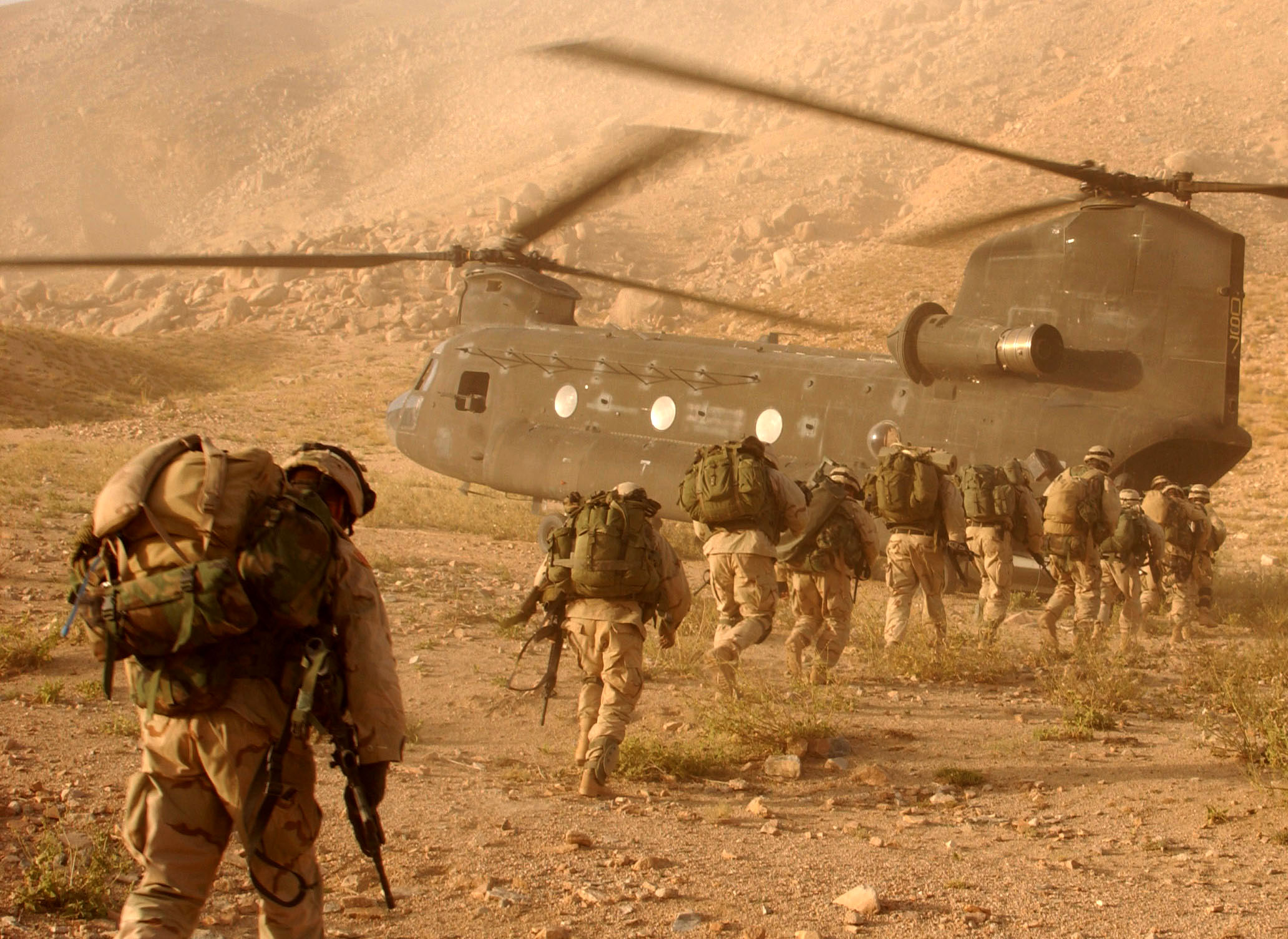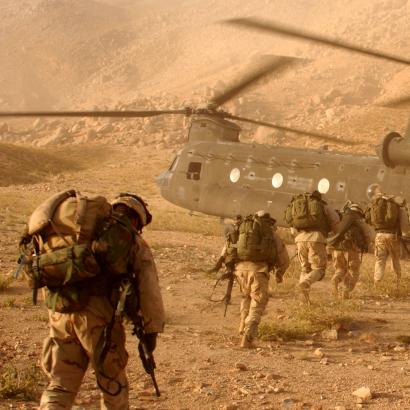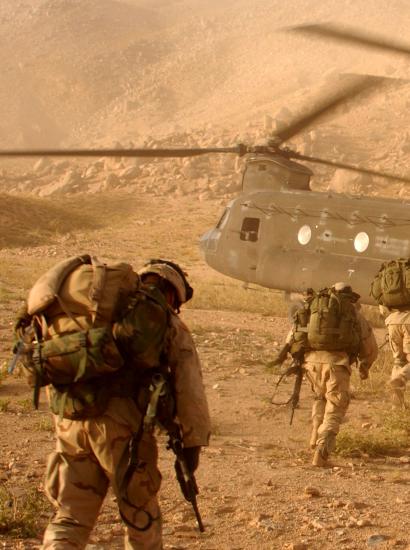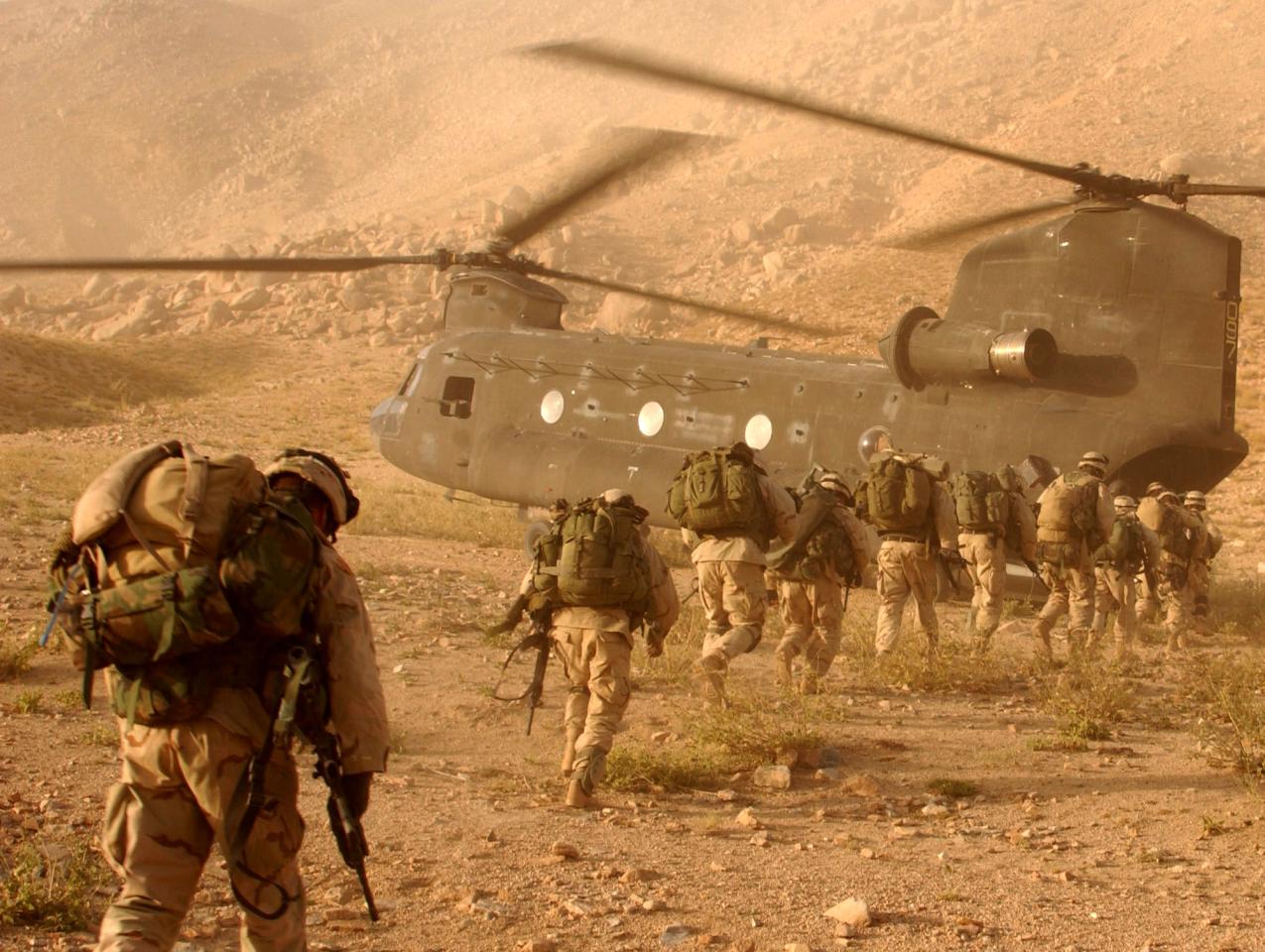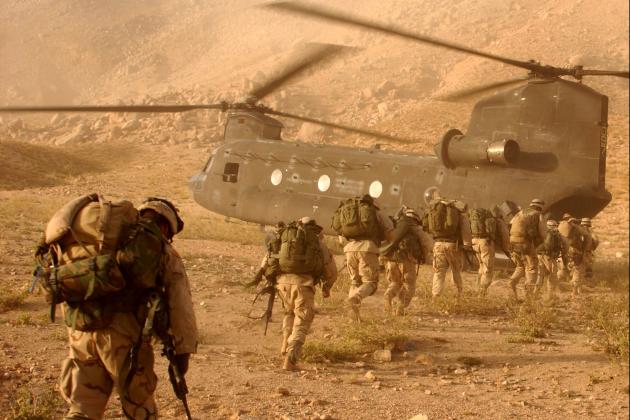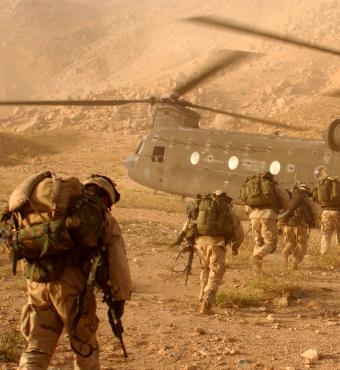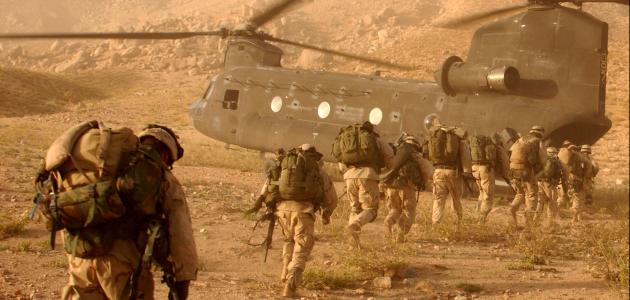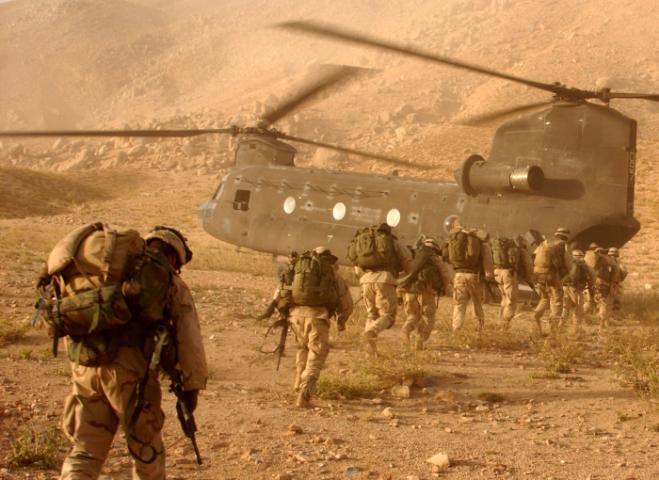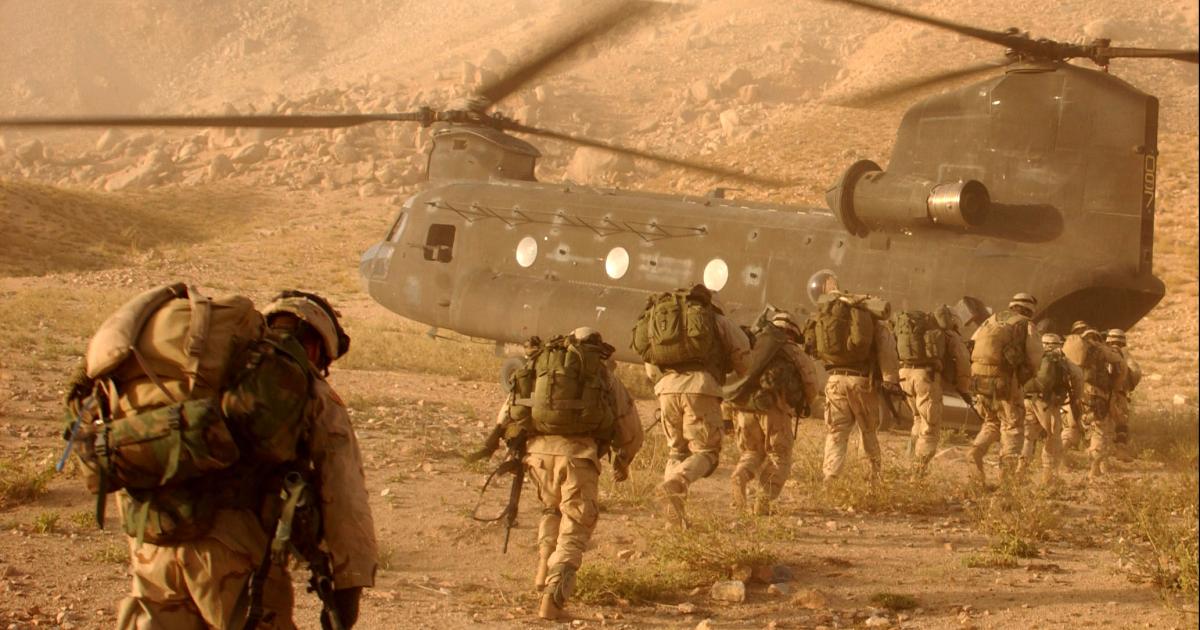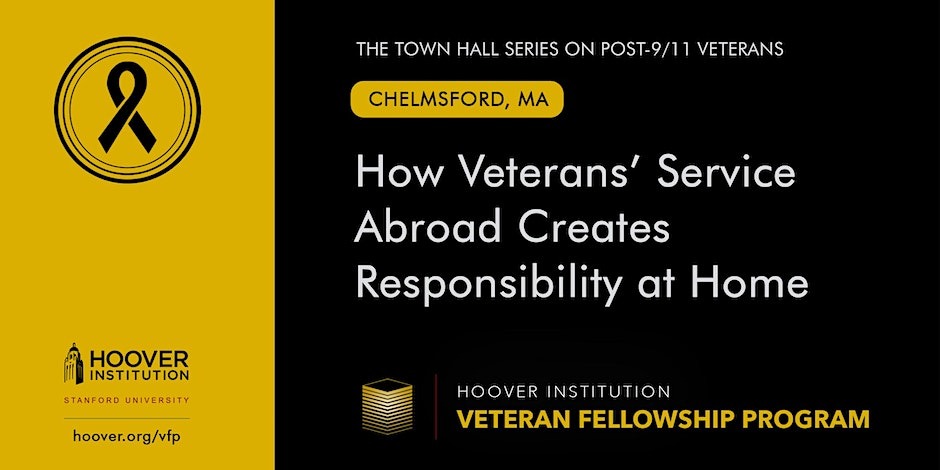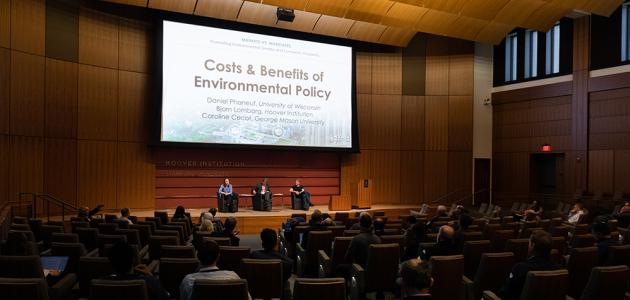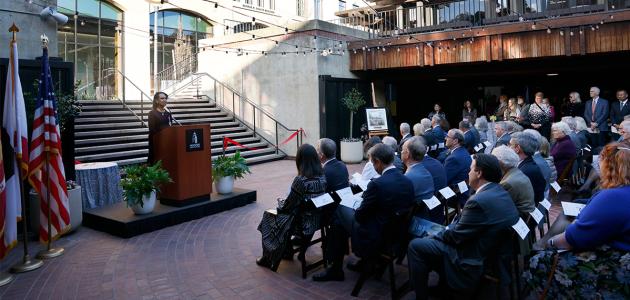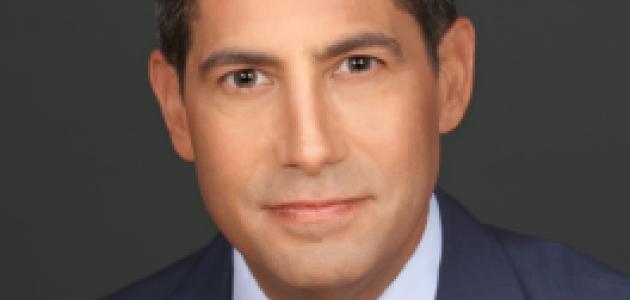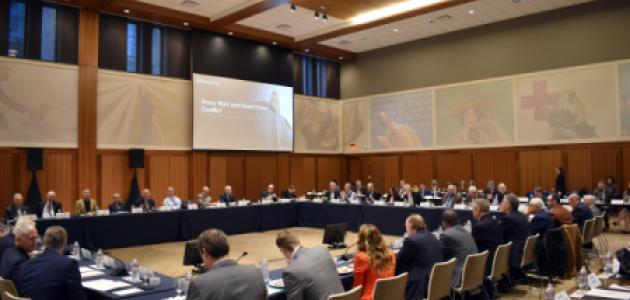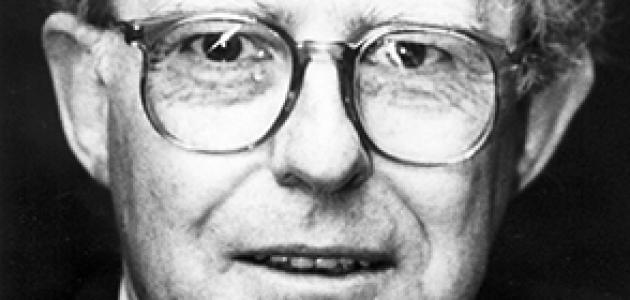After the United States spent twenty years, more than two thousand US servicemembers’ lives, and more than $2 trillion fighting the Taliban in Afghanistan, it’s hard for many veterans of that lengthy war to come to terms with its eventual outcome.
For John Moses, a Hoover Institution 2023‒24 Veteran Fellow devoted to resettling Afghan migrants in his home region in Massachusetts, the 2021 withdrawal of US troops and the Taliban’s return to power in Afghanistan hit him particularly hard.
“When the war ended that way, I felt like for quite some time that all the work I did, didn’t even matter. And a lot of it was for (women’s rights),” he told a gathering of veterans in Chelmsford, Massachusetts, on March 7, 2024.
Moses worked at the US embassy in Kabul, liaising between the army, embassy staff, and civil society groups, which at the time would have included a number of women’s groups.
Women are no longer permitted to assemble in public under the Taliban.
Moses acknowledged the Afghan people have a long history of being abused, misled, and ultimately abandoned by external powers, including by the Soviets from 1979 to 1989.
“When everything ended, I felt like I owed them, I made that promise— ‘we’re not the Russians, we’re not going to do the Russian thing,’—except that we did, and that wasn’t okay with me,” he said, referring to the August 2021 withdrawal.
Moses’s remarks were part of a panel discussion featuring other Afghanistan war veterans who convened in a townhall setting in Chelmsford, Massachusetts to speak about how their experience in that war shaped what they are now doing in civilian life and the obligations they feel to Afghans who cooperated with their efforts during the war but who didn’t make it out.
Moses is currently helping Afghan refugees settle in the Chelmsford area.
Moses said that he felt the United States left “people holding the bag” after the Taliban takeover. He referred to some of the incredible bonds he’s made with individuals whom he helped resettle in the community but lamented that his work was not enough to heal the wounds America caused when it left Afghanistan.
The event’s moderator, Hoover fellow Jacquelyn Schneider, affirmed that this feeling is common among Afghanistan war veterans.
“There was a real belief that we were there to do something good,” she said, referring to the role of US service personnel in securing democratic elections, building new infrastructure, and training and equipping the Afghan army, air force, and security services. “But twenty years later, that’s a really complicated question about what the legacy has been.”
The US government estimates that 47,000 Afghan civilians died during two decades of war, and up to three million fled to neighboring countries.
Another panelist, Felicia Pinckney, told the audience of the incredible bonds she forged in her unit after deployment.
Her experience went from “fixing broken Humvees on drill weekend” in the US to heading to Afghanistan in a National Guard finance unit as a staff sergeant. She spoke of enduring 3 a.m. rocket attacks at her base, ensuring her subordinates had the protection they needed, and then being there for them emotionally after they all returned home.
“If you call me tomorrow, I will be on a plane tomorrow. I will be at your house tomorrow. I will take care of your child tomorrow,” she said. “I am the oldest of seven and I can’t say that the relationship with my siblings is the same as that.”
Pinckney now works as a program manager for the Home Base Program, which offers mental health and other types of support to veterans and their families.
She compared her return to the return of veterans from a war that ended in a similar fashion: Vietnam. Pinckney said since the Vietnam period, veteran experiences following engagement in foreign conflicts have improved, albeit slowly.
“When we ‘welcomed’ the Vietnam generation home, they sort of had to hide,” Pinckney said. “You would never know they had any service—they sort of gritted their teeth through all of it.”
But today, the offer of mental health support for returning combat veterans is front and center.
Moses recalled his surprise when he heard a fellow sergeant urging his colleagues to seek counseling and therapy after their deployment.
Pinckney said she is slowly seeing the stigma against counseling evaporate: “I am grateful we live in a time where the stigma is not completely gone, but it is getting better.”
Pinckney and Schneider said that they estimate the ratio of suicide deaths among Afghan war veterans outnumbers actual combat deaths by nearly ten to one. That ratio translates into 20,000 Afghan war veterans who have taken their own lives.
But while the vets on the panel all acknowledged that they have had to accept help themselves upon their return, they each also expressed a desire to continue helping their communities and also the Afghans who were left behind.
“I don’t think it’s accidental that the veteran community is overrepresented in responding to that crisis,” Colin Frances Jackson, a US Naval War College instructor who served in Afghanistan and worked as a civilian there, said of the veteran-led efforts to assist Afghan migrants.
Moses himself went back to Kabul Airport for the final two weeks before the fall as a civilian to assist with transiting migrants to US bases.
He reiterated that the United States, in its rush to withdraw from Afghanistan, had failed its partners in that country.
“When everything collapsed and only 120,000 people came out, it was a broken promise,” he said.
This feeling was echoed by Jackson: “Someone broke promises to an entire generation.”







